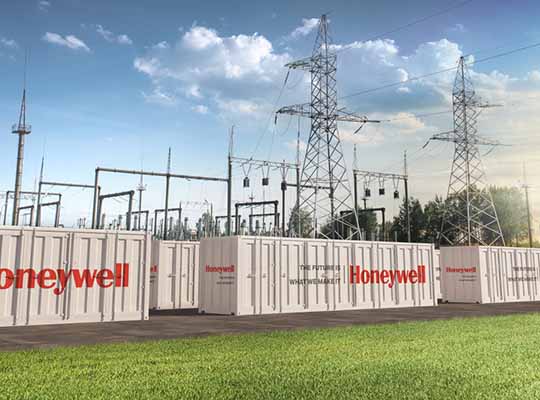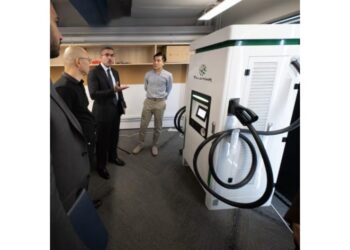ATLANTA – Honeywell has announced the next phase of a modernization project with Fort Benning, a U.S. Army post located on the border of Alabama and Georgia, to improve energy resilience and create a more comfortable living and working environment for Fort Benning soldiers, employees and tenants. The $23 million project will help significantly reduce energy consumption on the base and generate $1.4 million in annual energy savings.
The energy and operational savings achieved by the new measures are guaranteed by Honeywell and will self-fund the project, eliminating the need for up-front capital investment. The U.S. Department of Defense defines energy resilience as the ability to prepare for and recover from energy disruptions that impact mission assurance on military installations.
“The Maneuver Center of Excellence’s commitment to modernization is key as we look towards future operations,” said Maj. Gen. Patrick J. Donahoe, commanding general, Maneuver Center of Excellence. “By partnering with industry leaders, we can multiply our return on investment and continue to lead the world in readiness and quality of life. Realigning our energy usage to renewable and sustainable sources means we can focus on our mission of training the maneuver force and providing U.S. Army units with soldiers and leaders prepared to fight and win.”
This project phase includes more than 300 buildings, covering approximately 11.2 million square feet of Fort Benning’s total 26 million square feet of floorage. The project includes a utility monitoring and control system (UMCS), communication and cybersecurity upgrades, LED lighting, lighting controls and occupancy sensors, and building envelope improvements such as sealing cracks, gaps and holes and window solar film. Honeywell will repair an existing roof-mounted solar system to aid in producing renewable energy. The work will help to improve soldier comfort as Honeywell’s building control systems will remotely monitor key air quality factors such as temperature and humidity in the barracks.
“We regularly look for ways to achieve an increase in resiliency within the base, and one of the first steps in doing that is reducing energy use and lowering operating costs,” said Garrison Commander Colonel Alexis Rivera, U.S. Army Garrison Fort Benning. “The work we are implementing with our partners will not only improve operational efficiency but will directly impact our soldiers’ experiences on base. These upgrades will allow for immediate improvements to the comfort and productivity of the soldiers and civilians who work on base, as well as long-term benefits such as an increase in energy efficiency.”
Honeywell will also upgrade the buildings’ Niagara AX UMCS platform to the Niagara N4 – a platform offered by Tridium, a Honeywell business. Niagara Analytics will be implemented for Fort Benning to more effectively and efficiently collect data and make faster, better-informed decisions based on real and timely information, a critical step toward building a more secure and resilient group of facilities.
“The upgrades Fort Benning and Honeywell are implementing will continue to help reduce the base’s overall energy consumption and help it to better reach its resiliency goals,” said Jose Simon, vice president and general manager of Honeywell Building Technologies’ Projects business unit. “The updates will provide the Fort Benning team with access to a cache of data which can be leveraged to improve site maintenance and insight into equipment performance, increase risk mitigation and provide improvements that impact the well-being and safety of those living on and visiting the base.”
The project represents the next phase of a 25-year energy savings performance contract (ESPC) awarded to Honeywell in 2019 by Fort Benning, with a total project value of $43 million. Fort Benning is host to more than 100,000 U.S. Army members, trainees, dependents, retirees and federal civilian employees.
Honeywell has successfully executed similar projects at a variety of Department of Defense sites, including Kunsan Air Base, Tinker Air Force Base and Rock Island Arsenal, among other locations. Learn more about Honeywell’s performance contracting for military facilities here.
Honeywell recently committed to achieve carbon neutrality in its operations and facilities by 2035. This commitment builds on the company’s track record of sharply reducing the greenhouse gas intensity of its operations and facilities as well as its decades-long history of innovation to help its customers meet their environmental and social goals. About half of Honeywell’s new product introduction research and development investment is directed toward products that improve environmental and social outcomes for customers.













